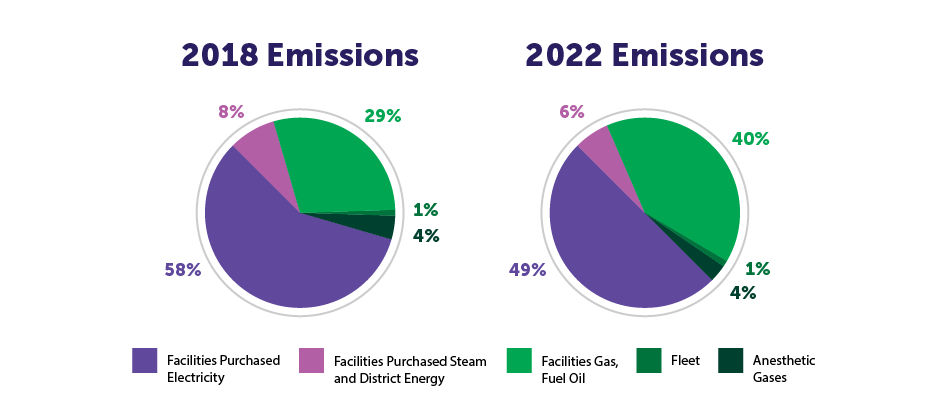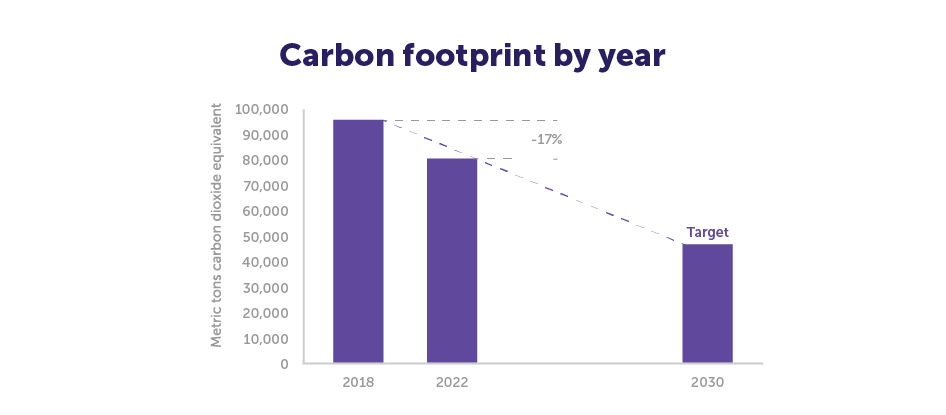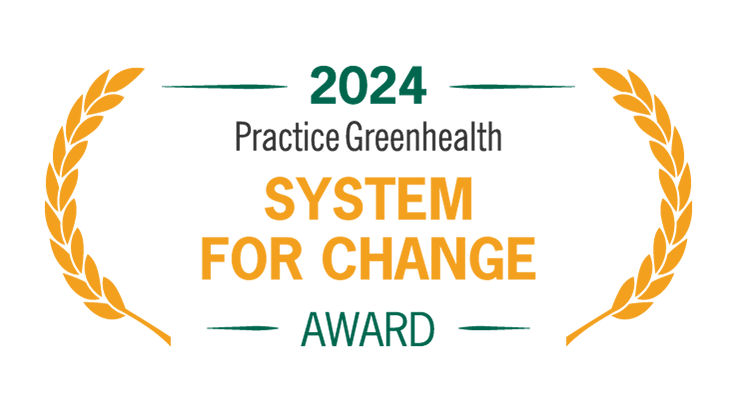Sustainability efforts help our patients’, members’ and our planet’s health
As one of the largest health care organizations in our region, it’s our responsibility to be good stewards of our environment. From the power sources we use to the purchases we make, HealthPartners strives to make choices and changes that promote health by protecting the environment.
Combatting climate change with smarter energy use
HealthPartners is committed to addressing the health threats posed by climate change. We are proud to be one of the first health systems to sign the White House/HHS Health Sector Climate Pledge, committing to reducing our greenhouse gas (GHG) emissions by 50% before 2030 and achieving net zero emissions by 2050.
Cutting down on carbon emissions
Between 2018 and 2022, HealthPartners decreased our total carbon emissions by 17%.

HealthPartners is trending in the right direction for both our emissions goals: 50% reduction by 2030 and net zero emissions by 2050.


Increasing efficiency and reducing climate impact
- Energy efficiency: Energy savings initiatives such as lighting upgrades and ventilation adjustments make our facilities more efficient and more comfortable.
- Solar power: We’ve invested in solar energy, both through on-site solar arrays and subscription agreements to local community solar gardens, generating millions of kilowatt-hours in solar energy each year.
- Smarter anesthetic gas usage: Responsible anesthetic gas usage reduces our carbon footprint and our costs. For example, we’re using alternatives to desflurane, an anesthetic gas with an especially large climate impact.
- A plan for change:
Our Climate Resilience Plan outlines the steps HealthPartners is taking to adapt to extreme weather events, both within our facilities and in the community.
Reducing waste, plus composting and donating
Health systems tend to require a lot of resources as we serve our communities. This is why we strive to both reduce the waste we generate and divert as much of that waste as we can from the landfill while maintaining high health and safety standards for our patients.

Operational adjustments
- Responsibly managing food waste: We’re diverting organics away from the landfill to composting and food waste recycling programs.
- Donating: HealthPartners donates unused medical equipment, supplies and office furniture to our nonprofit partners and mission groups. We also donate food that would otherwise go to waste.
- More efficient ORs: We’re reducing waste in our operating rooms, saving money and sparing landfills.
- Passing on paper: Initiatives such as encouraging paperless explanations of benefits reduce our paper usage.
Leading in culture and community
HealthPartners leads, advocates and implements initiatives that help the environment and advance health equity – both within and beyond our facilities.

Healthy measures
- Power in our people: HealthPartners has over 20 Green Teams and sustainability work groups across our organization, leading green practices at hospitals, clinics and administrative buildings.
- Recognition: HealthPartners is nationally recognized for our comprehensive sustainability program, including honors from Practice Greenhealth , the Wisconsin Sustainable Business Council and the Arbor Day Foundation.

- Leading our community: HealthPartners was the first health system in Minnesota to join the national Health Care Climate Council. We’re also leaders closer to home, partnering with local and state groups such as Express Bike Shop, Environmental Initiative and the State of Minnesota’s Goal 5: Healthy Lives and Communities Team.